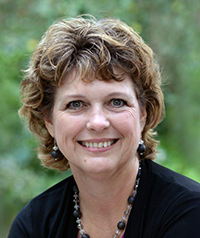 Women’s Forum – Quiet Conversations is a community conversation on topics rarely discussed openly. On November 15, attendees will hear from a panel of community and business leaders on a variety of important issues, including: gender discrimination, assault and abuse, sexual harassment, race relations, women and depression, unhealthy relationships and diversity and inclusion. We sat down with panelist Dr. Sharon Sullivan with Washburn University to discuss her specific topic, unhealthy relationships.
Women’s Forum – Quiet Conversations is a community conversation on topics rarely discussed openly. On November 15, attendees will hear from a panel of community and business leaders on a variety of important issues, including: gender discrimination, assault and abuse, sexual harassment, race relations, women and depression, unhealthy relationships and diversity and inclusion. We sat down with panelist Dr. Sharon Sullivan with Washburn University to discuss her specific topic, unhealthy relationships.
To many, certain images come to mind when talking about unhealthy relationships: that of the violent scene between an overly controlling spouse or significant other and their victim, for example. But it is important to understand that unhealthy relationships are not exclusively romantic ones, nor is the underlying abuse always violent in nature.
As Dr. Sharon Sullivan puts it, “The most difficult relationships are those with unequal power: parent/child, teacher/student, and boss/employee,” and “We need to be very conscientious about not exploiting our power in those situations.”
Unfortunately, though, any relationship with an imbalance of power has the potential to turn toxic.
What are the warning signs of an unhealthy relationship?
Control—where you go, who you are with, how much money you are allowed to have, what you can wear, etc.
Shaming–someone who puts you down or wants you to feel bad about yourself.
Jealousy and mistrust—often accusing you of lying or cheating
Physical, sexual, mental and emotional abuse.
Hostility—always picking fights or being disagreeable.
Dishonesty—lies, steals, cheats.
Intimidation—making you afraid so that they can get their way.
Dependence—threatening to harm self or others if you leave.
Disrespect—making fun of you and your beliefs, destroying your things, spying on you.
Issues Going Undiscussed
According to Dr. Sullivan, the public doesn’t talk nearly enough about emotional and mental abuse. “Too many people fail to understand the long-term impact of emotional and mental abuse. The most common effect is lowered self-esteem and self-confidence which often limits the individual from becoming their best self. The harm is real and lasting.”
Dr. Sullivan encourages those who are in or have recently exited a toxic relationship to pursue clinical help in addition to utilizing community resources.
In the Topeka community, she recommends the YWCA Center for Safety and Empowerment, 1-888-822-2983. Services are free for clients and the staff is well-trained in best practices to help people dealing with intimate partner violence, sexual violence, stalking and human trafficking. The facilities include a safe house, counselors, food pantry and a variety of groups such as healthy relationships, trauma informed yoga and survivor art night.
No Shaming Allowed (But Acceptance and Encouragement is)
“Remember, it can happen to anyone,” says Dr. Sullivan. “If your date punched you in the face the first time you went out, you wouldn’t have gone on a second date. Abuse can be insidious. Some abusers wait years, so the partner is absolutely invested in the relationship, before they begin abusing their partner.”
Furthermore, many survivors of abuse feel too ashamed to talk about their experiences, discerning that they will be judged poorly for having been in an unhealthy relationship – a fact that infuriates Dr. Sullivan.
“We need to hold up these women, men and children for having the stamina to make it out of an unhealthy relationship.”
But what’s more, she believes that the public needs to hold open discussions in various spheres (such as the office, school or church) to expand on the issues surrounding unhealthy relationships: extrapolating on the stigmas and victim blaming that makes so many survivors fall silent; addressing the differences between a healthy and an unhealthy relationship, especially with young people; discussing how to set up a network of support within your community. Dr. Sullivan also recommend that more individuals and communities alike visit their local advocacy centers and familiarize themselves with the services provided.
“We need to believe [survivors] and support them with empathy and excellent services,” because, ultimately, “We all deserve to be safe and loved.”
Be sure to share this event on Facebook, and stay tuned for more Quiet Conversation topics to be shared in the following days.
